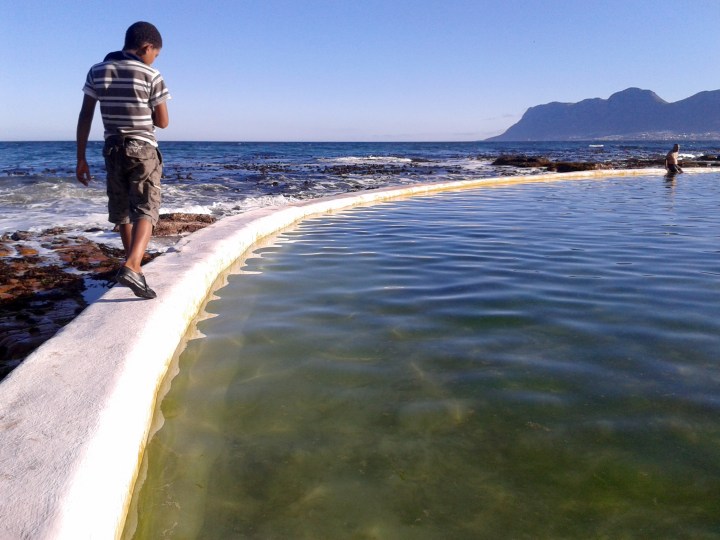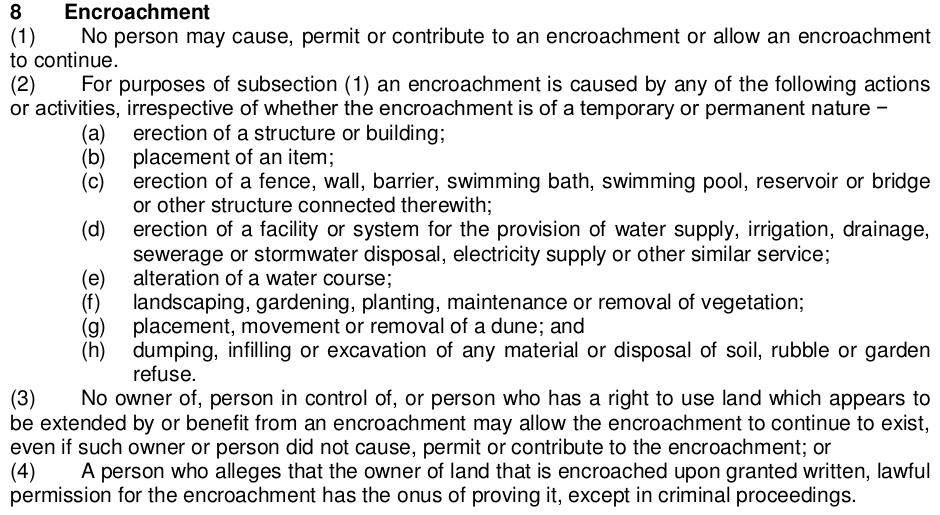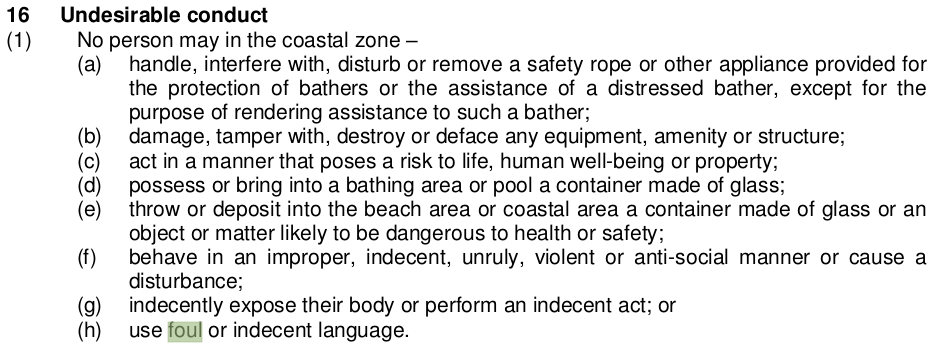GROUNDUP
Coastal by-law intends to push back beachfront property spread

But draft criticised for draconian measures such as outlawing foul language.
First published by GroundUp
Owners of highly valued beachfront properties have significantly encroached on the public’s right to access beaches by extending the edge of their properties onto public coastal land, or blocking access paths, said City officials at a public participation meeting in Fish Hoek on Thursday evening.
Although City departments are still assessing the number of private properties encroaching on city beaches and the coastal zone which the public has right of access, it was “a lot” said environmental department manager Gregg Oelofse.
Speaking at the public participation meeting on the draft Coastal by-law, Oelofse said there were many properties in areas such as Clifton, Simonstown, and Melkbosstrand where owners had extended beyond their erf boundaries and onto the public coastal area.
Head of coastal policy development, Darryl Colenbrander, said there is a stretch of 13 adjacent properties in Melkbosstrand, for instance, which had encroached on the beach. Colenbrander said he himself had been kicked off an area that was actually public city land, by a private owner.
It was an “inexchangeable principal” that the beach was “accessible public space”, said mayco member for the planning appeals advisory panel, Marian Nieuwoudt.
Nieuwoudt said the by-law addressed the issue of encroachment and gave city officials enforcement capacity they did not have at present.

Many Capetonians will welcome the section of the by-law that deals with encroachment.
However, the wording of the by-law in its current form hands the City potentially draconian powers, including the ability to prevent access to a beach, determine what times the public could access a beach, or charge a fee for access to the beach. This could be decided by a single authorised official. It also allows for an “authorised official” to issue a fine for use of “foul or indecent language”.
It further bans traders from selling goods at the beach, or buskers from providing entertainment unless they have written authorisation from the City.
Oelofse said the sections of the by-law that allow the City to control access to the beach is only in case of an emergency or accident, or where safety measures need to be put in place if there is a whale stranding, for instance. He said references to an authorised official preventing access, determining times of access, or charging for beach access, refer to existing city-managed coastal facility or camping sites such as Soetwater or Silverstroom.
Yet the draft by-law notes entry to a coastal facility may be controlled by an authorised official, and the by-law’s definition of a coastal facility includes “a beach”.
So it would, as presently defined, allow the City to prevent, limit numbers to, or charge access to, any beach.
Oelofse and Colenbrander said this was not the intention.
One member of the public at the meeting, who did not provide his name, took issue with the “nanny state” approach of the draft by-law, which outlaws foul language and allows the city to close coastal access in cases of severe weather or dangerous sea conditions.
“Have you ever worked with the trek-net fishermen?” he asked.

Section 16(h) of the new by-law is unlikely to be adhered to by most Capetonians.
In its current wording, the City could prohibit surfers from paddling out when there were large swells if it deemed the sea too dangerous.
He said the City also needed to calculate the loss of amenity value by banning people from enjoying a cold beer at the beach after a surf, or sundowners on the rocks.
Oelofse said alcohol was banned from the beach as most drownings took place because people were inebriated, and it was also the cause of anti-social behaviour.
But this was countered with the argument that drunkeness and anti-social behaviour should be banned, not a blanket ban on having a drink.
Although the ban on drinking on the beach is legislated in a separate by-law, as noted by Colenbrander, the Coastal by-law would take precedence over other by-laws in respect of the coastal zone. So it could overrule the Nuisance by-law in respect of allowing moderate consumption of alcohol, as well as hawking and busking on beaches.
Among management of other issues such as fishing and poaching, the by-law outlaws pollution of the coastal zone. However, a number of concerned residents stated the City was the main polluter of the environment due to infrastructure failure resulting in cross contamination of sewerage and storm water systems which flow directly into the sea. Further, three marine outfalls pump 37 million litres of sewage into the sea every day. This sewage is untreated except for being pumped through a sieve to remove any solid matter.
Questions as to how this by-law would provide for recourse in cases where the City was responsible for pollution, were raised.
“I don’t know,” said Colenbrander. “How do we deal with it if it is unintentional pollution?” He said the draft by-law was concerned with intentional pollution.
Head of nature conservation and meeting facilitator Bongani Mnisi said comments or input on the draft by-law were open until 2 September, and residents needed to supply their comments, input, or objections in writing, either online through the City’s haveyoursay portal, or by sending an email to [email protected]
Public participation meetings have been held at three of the eight coastal subcouncils, with meeting scheduled for the remaining five. The public participation meeting calendar can be viewed here.
No public participation meetings are scheduled for subcouncils which do not include coastal areas.
The draft Coastal by-law is available at all libraries, and online here. DM
Produced for GroundUp by West Cape News


















 Become an Insider
Become an Insider